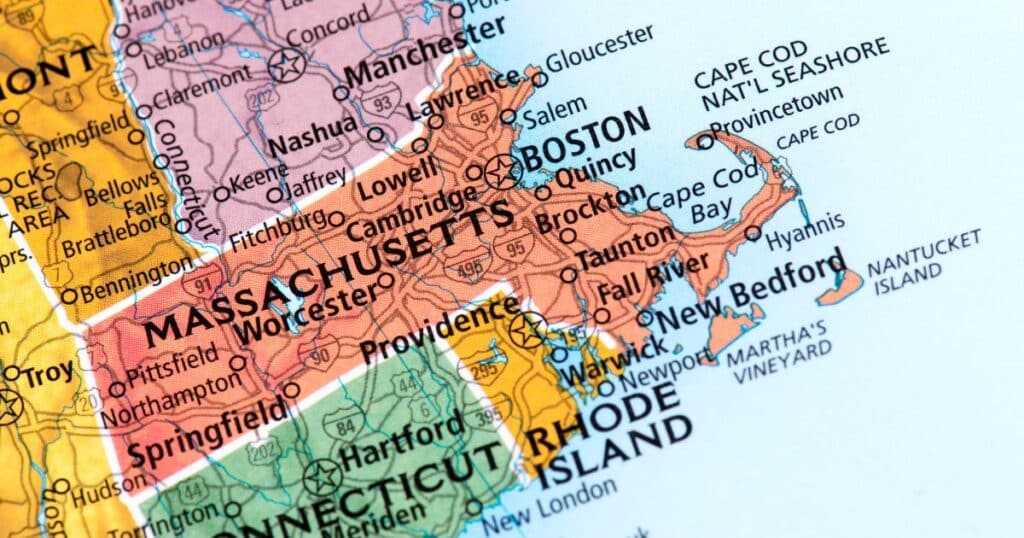Welcome to the latest update in the ever-evolving world of cannabis legalization! In a bold move, several cannabis businesses in Massachusetts have filed a lawsuit against U.S. Attorney General Merrick Garland, challenging the enforcement of the Controlled Substances Act (CSA) and its impact on state-regulated cannabis activities.
This groundbreaking case sheds light on the ongoing battle between federal and state laws regarding cannabis and raises important questions about the constitutionality of the CSA.

To fully understand the significance of this lawsuit, it’s important to have some background knowledge about the CSA and its connection to cannabis. The CSA, passed in 1970, classifies drugs into five schedules based on their potential for abuse and accepted medical use.
Unfortunately, cannabis is classified as a Schedule I drug, implying that it has no medical value and a high potential for abuse. This classification has been a major roadblock for the cannabis industry, as it prohibits the production, sale, and use of cannabis at the federal level, regardless of state laws.
This clash between state and federal laws has resulted in confusion and legal challenges for cannabis businesses, hindering their growth and success.
In 2005, the Supreme Court rejected a similar case, Gonzales v. Raich challenging the CSA’s constitutionality on the grounds of states’ rights. The Court concluded that the federal goal of eliminating commerce in cannabis, combined with the assumption in 2005 that intrastate marijuana could not be differentiated from interstate cannabis, justified the Controlled Substances Act’s prohibitions on intrastate cannabis.
However, since then, there have been significant changes in attitudes towards cannabis at both federal and state levels. Currently, 38 states have legalized medical cannabis, and 15 states plus D.C. have also legalized recreational use. This shift in public opinion has put pressure on federal agencies to reconsider their stance on cannabis.
Details of the Lawsuit
Boies Schiller Flexner and Lesser, Newman, Aleo & Nasser LLP filed the lawsuit in the United States District Court for the District of Massachusetts, Western Division.
The plaintiffs in this case include local independent operators Gyasi Sellers (CEO and Founder of Treevit), Canna Provisions, and Wiseacre Farm, and several larger cannabis businesses in Massachusetts are included in the suit, such as Verano Holdings Corp, Ascend Wellness Holdings, TerrAscend Corp, Green Thumb Industries Inc, Eminence Capital and Poseidon Investment Management represented by the aforementioned law firm Boies Schiller Flexner. These businesses have been operating legally under state regulations but have faced numerous challenges due to the CSA’s impact on their operations. The plaintiffs argue that the CSA is unconstitutional as it violates states’ rights and unfairly punishes small businesses that are following state laws.
Per a press release by Boies Schiller Flexner, “The lawsuit seeks to confirm the rights of Massachusetts and other states to regulate cannabis within their borders, and to confirm the corresponding limits on the federal government’s power to regulate commerce. The federal government’s power to regulate commerce is based on the Interstate Commerce Clause of the Constitution. The law at issue in this suit, the Controlled Substances Act, exceeds that limited authority: it bars the production, distribution, and possession of marijuana, regardless of whether those activities cross state lines or, as in the case of Plaintiffs’ cannabis businesses, are intrastate. This unjustified and unconstitutional prohibition on intrastate cannabis harms Plaintiffs and hinders the efforts of states to provide patients and adults with access to strictly-regulated and tested cannabis.”
Under the CSA, state-regulated cannabis businesses are considered illegal and their operations are punishable as federal crimes. This not only restricts them from accessing various federal programs but also exposes them to discriminatory tax penalties.
“The federal criminalization of safe, regulated marijuana commerce in states where it is legal unfairly burdens legal operations and expands the production and sale of illegal marijuana that is unregulated, can be unsafe, and is likely to find its way to other states,” said David Boies, Chairman, Boies Schiller Flexner LLP
“Federal criminalization also denies small, legal marijuana businesses of access to SBA loans, investors, benefits for their employees, and normal banking regulations (which among other things, forces them to rely on cash transactions with all of the dangers to them, and to the community, that result) – as well as burdening them with discriminatory taxes,” said Mr. Boies
Moreover, due to the risk of being implicated as accomplices, many organizations such as banks and credit card processors refuse to do business with cannabis companies.
As a result, the cannabis industry has been struggling, leading to job loss and hindering wealth building opportunities for individuals. The impact is even greater for social equity licensees- individuals who have been disproportionately affected by the War on Drugs- as they do not have equal access to the benefits and opportunities available to other cannabis business owners.
This lawsuit aims to address these issues and provide relief to state-regulated cannabis businesses, promoting fairness and equality in the industry.
The plaintiffs are seeking an injunction against the federal government’s enforcement of the CSA in a way that obstructs state-sanctioned cannabis activities.
Potential Impact on the Cannabis Industry
The outcome of this lawsuit could have a significant impact on the cannabis industry. The federal prohibition of marijuana has created many challenges for cannabis businesses, hindering their ability to thrive and grow. One major obstacle faced by these businesses is difficulty obtaining loans and investments due to federal illegality. This has restricted their ability to expand and compete in the market.
In addition, cannabis businesses are subject to discriminatory taxes under the IRS Tax Code 280E, which prohibits them from deducting ordinary business expenses on their federal tax returns. This results in significantly higher tax rates for cannabis businesses compared to other industries, making it difficult for them to operate profitably.
A successful lawsuit would have the potential to change this landscape. It could lead to updates in banking regulations, allowing cannabis businesses to access traditional financial services and loans. This would not only provide relief for these businesses but also benefit the economy by creating more jobs and generating tax revenue.
Furthermore, if the DEA were to reclassify marijuana from Schedule I under the CSA, it would open up opportunities for more research and development in the cannabis industry. This could lead to advancements in medical treatments using cannabis and potentially pave the way for nationwide legalization.
Additionally, a successful lawsuit may prompt updates to the Cole memo, which guides federal prosecutors on enforcing marijuana laws in states where it is legal. This could result in less federal interference with state-regulated cannabis businesses, allowing them to operate without fear of prosecution.

In summary, the potential impact of a successful lawsuit against AG Garland and the federal government could bring about positive changes for the cannabis industry. It has the potential to level the playing field for cannabis businesses, allowing them to access resources and opportunities that have been previously unavailable due to federal prohibition.
This could lead to significant growth in the industry and benefit not only businesses but also individuals and the economy as a whole. So, this lawsuit is being closely watched by those in the cannabis industry and beyond. Stay tuned for updates on this important case. So, let’s hope for a positive outcome that will promote fairness and equality for state-regulated cannabis businesses.
Enjoyed that first hit? Come chill with us every week at the Friday Sesh for a freshly packed bowl of the week’s best cannabis news!

















